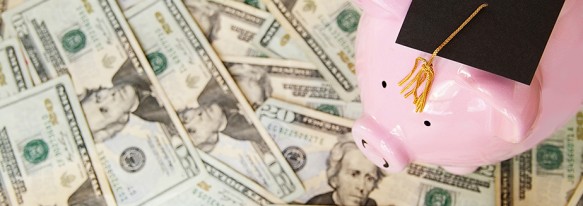


Good Debt Vs. Bad Debt
With a credit card it is often easy to overspend as the money does not come directly from a bank account. Unfortunately this is being done earlier in a person’s life, making it harder to get out of debt. This kind of debt is considered to be “bad debt”. Bad debt is not looked upon favorably by the bank, or any other money loaner. However, since there is bad debt there is also good debt. This article will discuss good debt and bad debt and look at ways of managing both.
Good Debt

What is good debt? Who decides what debt is good and which is bad? Good debt is “good” from the perspective of the bank, or any other person or place that loan money. Good debt is when the loan you have taken out goes towards something that will appreciate in value, such as an education or a house. You yourself become a good investment in the eyes of the loaner. So, for example, if one takes out a loan for school to obtain a masters degree, it is believed that one will get a good paying job after finishing the degree that will more than pay off the original amount that was received from the government or bank. The same is true with a house. The belief is that the market value of the house will increase over the years that it is owned so that one will be able to make more money than one paid for it when it comes time to sell it.
Bad Debt

Bad debt is the money you take out on loan that is used on things that will not bring you more money. It’s the loan you take out for vacation, or a car or pretty much anything put on a credit card. Again, it is important to note that bad debt is “bad” in the eyes of the would-be loaner. This is the bank, or individual or company that is planning on giving you their money. They want to have some sort of security in knowing that they will get their money back. So, if you plan on getting any more loans you want to take care of your bad debt. Make sure to pay off the bad debt before you start to pay off the good debt. Saying it is easier than doing it, though. Student loans are usually the first loans that you will pay off, as you cannot keep taking from these loans once you’ve finished school. And then the payments are usually automatically deducted from your account.
Managing Debt
If you want to manage your debt, it may be easier to do so if you think in terms of “good” and “bad” debt. If you’re considering getting a car and think that you’ll take out a loan, consider the value of the car in a few years. Probably a lot less than it will cost you now. A car only depreciates in value (unless it is some sort of exotic sports car), so it is definitely bad debt and may not be something you want to borrow money to invest in. Thinking about taking a course that will make you eligible for a higher position in your company and in effect pay you more? Taking a loan out for this would lead you to have good debt as eventually you will be making more money and may even be able to pay off the debt faster.
It is important to note that you never pay off debt with more debt. Use money. Using debt to pay off more debt will only cause more debt. Taking out a loan to pay off good debt does not make that loan good debt in association. Use money. If it takes a little extra time, so be it.
Conclusion
Think twice before you take out that second credit card to pay off the first one. It might feel hopeless if you consider paying it back with actual money but it will be well worth your effort. You will not be at the risk of acquiring any new debt, especially bad, new debt. If you want to make more money, maybe you should invest in going back to school or invest in a new house. That way you are accumulating good debt (which is better than bad debt) and you are likely to see an increase in funds.












